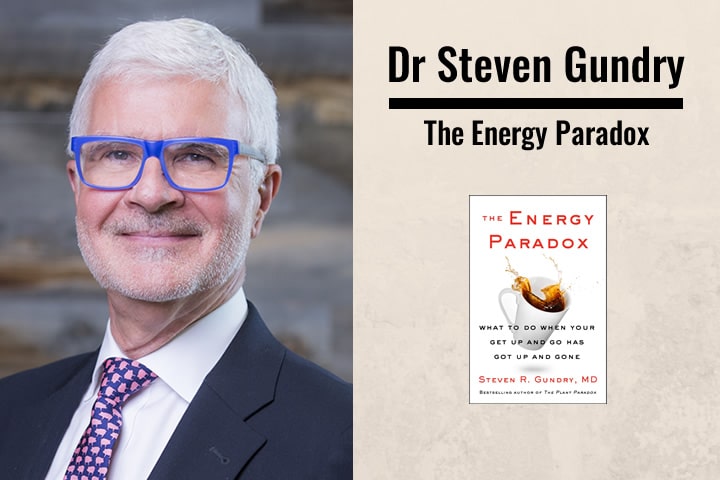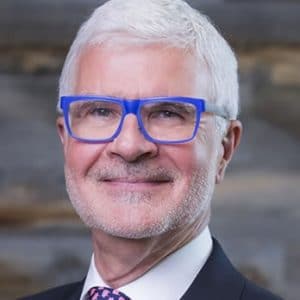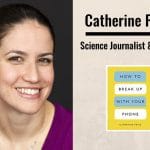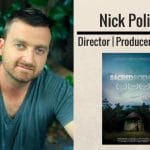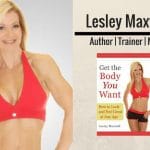Watch the full interview below or listen to the full episode on your iPhone HERE.
Stu: This week, I’m excited to welcome Dr. Steven Gundry to the podcast. Dr. Gundry is one of the world’s top cardiothoracic surgeons and a pioneer in nutrition. He spent the last two decades studying the microbiome and now helps patients use diet and nutrition as the key form of treatment. He’s the author of many New York Times bestselling books, including his latest title, The Energy Paradox, which we discuss here. In this episode Dr. Gundry outlines, the seven deadly energy disruptors, and where to start to address them. We also discuss medical testing, leaky gut syndrome, meal timing, and so much more… over to Dr. Gundry.
Audio Version
 Questions asked during our conversation:
Questions asked during our conversation:
- Should we simply accept that low energy is to be expected as we age? (02:48)
- What are the tell-tale signs that we’re suffering from chronic low energy? (07:11)
- What are ‘The 7 Deadly Energy Disruptors’? (27:07)
Get More of Steven Gundry
If you enjoyed this, then we think you’ll enjoy this interview:
- Dr Christiane Northrup – Unlocking the Key To Vibrant Health
- JJ Virgin – Linking Food Intolerances to Weight Gain
- Jason Fung: The Complete Guide to Fasting (& how to burn fat)
The views expressed on this podcast are the personal views of the host and guest speakers and not the views of Bega Cheese Limited or 180 Nutrition Pty Ltd. In addition, the views expressed should not be taken or relied upon as medical advice. Listeners should speak to their doctor to obtain medical advice.
Full Transcript
Stu
00:03
Hey, this is Stu from 180 Nutrition and welcome to another episode of The Health Sessions. It’s here that we connect with the world’s best experts in health, wellness, and human performance in an attempt to cut through the confusion around what it actually takes to achieve a long lasting health. Now I’m sure that’s something that we all strive to have. I certainly do. Before we get into the show today, you might not know that we make products too. That’s right. We’re into whole food nutrition and have a range of superfoods and natural supplements to help support your day. If you are curious, want to find out more, just jump over to our website. That is 180nutrition.com.au and take a look. Okay, back to the show.
This week, I’m excited to welcome Dr. Steven Gundry to the podcast. Dr. Gundry is one of the world’s top cardiothoracic surgeons and a pioneer in nutrition. He spent the last two decades studying the microbiome and now helps patients use diet and nutrition as the key form of treatment. He’s the author of many New York Times bestselling books, including his latest title, The Energy Paradox, which we discuss here. In this episode Dr. Gundry outlines, the seven deadly energy disruptors, and where to start to address them. We also discuss medical testing, leaky gut syndrome, meal timing, and so much more. Over to Dr. Gundry.
Hey guys, this is Stu from 180 Nutrition and I am delighted to welcome Dr. Steven Gundry to the podcast. Dr. Gundry, good afternoon. How are you?
Steven
01:35
Stu? Thanks so much for having me. Appreciate it.
Stu
01:37
No. Well at the pleasure’s all mine. Now I would imagine that the majority of our audience will have heard of you, but first up for those that haven’t. I wondered… I’d love it if you could just tell me a little bit about yourself, please.
Steven
01:51
Oh, gosh. No, that’d take the entire 45 minutes. So I’m a world famous heart surgeon that just over 20 years ago, saw a gentleman reverse inoperable coronary artery disease by changing his diet and taking some supplements from a health food store. And it was the most amazing thing I ever saw. Didn’t believe it could happen, but saw it with my own eyes. So I actually experimented on myself and my patients. I resigned my prestigious chairmanship of heart surgery at Loma Linda University and open clinics where I teach people how to eat. And now 80% of my practice is autoimmune diseases that have defied treatment. And so whatever anybody comes in with. So we usually have a good time. Now we’ll go-
Stu
02:48
Great, fantastic. Thank you so much and interesting that you should say you teach people how to eat as well. Because I feel in the age of technology with all of the tools that we have at our fingertips now, we’ve never been so confused. And we’ve had everything from vegan to carnivore and all of the different types and variables in between still very, very confused. And I guess for our listeners that… We’re going to talk about your new book today, which is called The Energy Paradox, but for our listeners that want to jump into, I think more of the nutritional side of things, they can visit The Plant Paradox. Which is really, really interesting in the concepts that you put forward in terms of how we might be going astray with the foods that we are eating every day. But let’s jump into The Energy Paradox. “What to do when you’ll get up and go has got up and gone.” Made me smile. I guess first question, should we simply accept that low energy is to be expected as we age?
Steven
03:56
Yeah, absolutely not. I think that’s one of the first wake up galls, excuse the expression for reading this book. We’ve been, I think, taught that in our modern lifestyles that low energy is just a consequence of just our go, go lifestyles zone. We ought to be exhausted. We ought to have a double espresso several times a day. We should have an energy bar to increase our energy. And the fact is that low energy is really a warning sign that something is not working inside of you.
And not to say, “Oh, you’re just getting old.” Or… I have so many women patients, particularly that go through some very big workups from their practitioner and they’re all normal. And they’re told, “It’s all in your head.” And as I write in the book, it is in your head but it’s not in the way you think it is. There’s actually brain fog being caused by disturbances in your microbiome, in your gut. And we may talk about that.
Stu
05:03
Okay, interesting. So you mentioned testing as well from medical professionals. And I know that there are so many different tests that can be done in terms of microbiome, hormones, bloods, vitamins, minerals, all of the above. In your opinion, what are the gold standards in medical testing that we can access when we’re just feeling constantly fatigued?
Steven
05:30
Well, I’ve told everyone who will listen, if I only have one blood test that would probably be the most useful blood test to kind of predict your fate. It would be a fasting insulin level. And I train third-year family practice residents in my clinic. And they’re about to go out into practice and to a person they have never heard or have been taught to get a fasting insulin level. They don’t even know what that means.
So many times people get a fasting, blood sugar, a fasting glucose, or a hemoglobin A1C. Which is advertised on television here in the United States all the time. But these actually don’t give you, unless they’re way out of whack, a very good clue of how our mitochondria: which are actually the producers of energy and all of our cells, these little organelles that make ATP. Fasting insulin level gives you a very good idea of whether your mitochondria are what we call metabolically flexible. Whether you have insulin resistance. Whether you have pre-diabetes. And in so many people, their fatigue is coming from the fact that their mitochondria really are having a horrible time in handling the food that we eat to give them to produce energy.
Stu
07:11
Interesting. Telltale signs then, just so people are aware of the things that they should be mindful of when considering this low energy crisis. You’ve spoken about brain fog and overall fatigue. What are the other signs?
Steven
07:30
Well, I actually wrote that… I wasn’t planning to write this book, but I was driving to do a fundraiser for a public television in Southern California. And I got a call on my cell phone, as I was driving saying that this person who is going to do the program with me, interviewing, wasn’t going to come in because she just didn’t have it in her. And this is a millennial. And I go, “Oh my gosh. What are we going to do?” And they said, “Well, we’ll get somebody else,” but that stuck with me. That here’s a millennial that just doesn’t have it in her to come to work. And I went, “Wow.”
And so I started to think about so many of my autoimmune patients, many of whom are young. And they often presented with actually fatigue and malaise or not having it in them. And it was when we started doing more sophisticated tests for leaky gut and autoimmune disease that well, it was obvious why they had fatigue and malaise. And it’s because most people are literally burning up with what I call the fire of inflammation. And we now get to talk about, “Oh, anti-inflammatory foods and anti-inflammatory habits” but inflammation comes from a leaky gut.
And Hippocrates is 2,500 years ago literally said, “All disease begins in the gut.” And he didn’t have any sophisticated tests. The guy was a genius, he’s right. And work from Dr. Fasano at Harvard and my work, has pretty conclusively shown that he was right. But we ought to amend that, that all disease comes from a leaky gut. And in the book I explained why leaky gut causes the inflammation that’s robbing all of us of our energy. Our immune system… 80% of our immune system lines our gut. And that’s because mischief is going to come across the wall of our gut.
The wall of our gut is the same surface area as a tennis court. So when your viewers and listeners are watching the Australian Open, just imagine that that literal tennis court surface is inside our abdomen. And it’s only one cell thick. And so things that we can eat like lectins, bacterial particles, like lipopolysaccharides LPSs, can come across our gut. And our immune system is basically our border patrol. And this army requires huge amounts of energy to do its job. And what we’ve shown and others have shown, is that this army of our immune system is taking most of the energy nutrients to fight this battle. And that leaves less energy for our muscles. It leaves less energy for our brains. It leaves less energy for our hearts and no wonder we feel so tired.
Stu
10:58
Yeah, fascinating. It’s so funny to hear that term now being so widely acknowledged. Because rewind 10 years ago, leaky gut was almost a woo-woo term. And I remember on this podcast, there were some radical health professionals talking about this new phrase, leaky gut. And they were just adamant that it was so important that now it just does seem to be at the epicenter of health. And I also think epicenter of confusion because people were just, “Oh, it’s too hard. It takes too long to fix. Too complex. Don’t know what to do. Maybe I’ll just go out to the shops and buy some probiotics, that’ll fix it.” Where would we start?
Steven
11:38
Yeah, that’s a great point. If you had asked me… I’ve been at this for 21 years in my current role. And if you had asked me 15 years ago, what I thought about leaky gut I probably would have told you it was pseudo science at best. But now again, I think, thanks to Dr. Fasano and again
12:00
And others who’s really been able to show that leaky gut number one exists, that it underlies probably all auto-immune disease and certainly all inflammation. It’s no longer pseudo science. Now, does it take a while to fix? If you had asked me 20 years ago, how fast I could fix it I’d say a couple of weeks, no problem.
Stu
12:26
Yeah.
Steven
12:26
Now it can take up to a year in really bad cases to solve the problem. Although we look at labs and people every three months in my clinics. And so we can see in three months actually dramatic changes, but some of my harder ones can take a year. So getting back to your question about probiotics, most people now know probiotics, friendly bacteria, and people say, “I eat my yogurt and I get my probiotics” but probiotics really are not that important. The vast majority of probiotics never make it into the intestines.
And most people don’t realize that the probiotics that we ingest only go on vacation in our gut for about two weeks, and then they leave. They just sit back on their lounge chairs and leave. It’s like you go to the beach for a few days, but they leave, they don’t become part of our established flora. But what’s really important is prebiotics, and people are beginning to understand prebiotic fiber. These are the long chain starches that we have a terrible time adjusting and breaking apart. But they arrive at our probiotics at our gut buddies as I call them and they eat them. So they have to have them to survive. But the really exciting thing, and the book spends a lot of time talking about this. It’s if we give probiotics the prebiotic fiber that they need, they in turn produce what are called post-biotics.
And post-biotics most people have not heard about yet. Post-biotics are short chain, fatty acids and actual gases like hydrogen gas, like hydrogen sulfide, the rotten egg smell and methane. And all of these post- biotics now constitute a language where our gut microbiome talks, literally talks to our mitochondria to produce energy. And this actually won the Nobel prize a few years ago for the discovery of this language. So in the link, probiotics are actually the weak link of this chain. And in the book, we want people to understand how important prebiotic fiber is to produce post-biotics, which are the real workhorses of sealing leaky gut number one, and telling your immune system to stand out, to relax, to take it easy. And that’s really where the money is in bullet points.
Stu
15:26
And in terms of accessing prebiotics as well, would your recommendation be supplements or whole foods?
Steven
15:35
So actually both. It’s very, very difficult for the average consumer to get as much prebiotic fiber from the foods that we eat. I mean, traditional Hunter gatherers, and I write about this in the book have been shown to eat as much as 150 grams of prebiotic fiber a day, which is quite frankly a huge amount. The average westerner, if we’re lucky may get 20 grams of fiber, but there’s easy ways to get it. For instance, ground up flax seeds are a great prebiotic fiber, ground up psyllium seeds are great prebiotic fiber. One of my must have is basil seeds. Please folks, if you’re listening, throw your chia seeds away they actually cause leaky gut and buy basil seeds, they’re far much better for you as a prebiotic fiber. And they’re readily available.
Some of the other tricks, the inulin containing vegetables, they’re the chicory family of vegetables like Belgian endive, like radicchio, like curly endive, are great sources of inulin a prebiotic fiber, asparagus is a great source, artichokes, artichoke hearts are great sources of prebiotic fiber. Jicama which is very popular in the States is a great prebiotic fiber. In general tubers like sweet potatoes, yams are great sources of prebiotic fiber. With the proviso that you can take any of these, cook them particularly tubers and then cool them and then reheat them and you will dramatically increase the resistant starch in these tubers.
Stu
17:36
Great tip. Fantastic. So the new book, The Energy Paradox, what might we expect? Is this a roadmap that will just seamlessly guide us through this journey?
Steven
17:50
Yeah, it’s actually like all my books, each one feeds on where the last one stopped. The Energy Paradox, number one, certainly introduces people to, “Okay, let’s make some post-biotics”. Believe it or not I want people to step on the gas. People have to realize that gas production in their intestines is not just foul smelling stuff that you have to be embarrassed, but it actually is a language. But equally important, as far as I know and I’m welcome to be corrected, I’m the first person that actually wrote about the importance of time, restricted eating or intermittent fasting. Back in 2006 with my first book, long before the five two diet long before my colleague Jason Fung started talking about this. Back then, for the last 21 years during the winter months, our winter months, I was eating only two hours a day. And I was fasting 22 out of 24 hours from January through June every year, and this is my 21st year of doing this. And most people, if I say, “Okay, I only want you to eat in a six hour window from when you start eating until you finish eating during the day.” As I talked about in the book, 80% of people would fall flat on their faces because we don’t have the metabolic flexibility to do that. But what I want to give people is a guide to, “Okay, I can’t skip 18 hours a day of not eating.” But you get eight hours off for sleeping, hopefully. But if you can get me one hour at a time to a point where I can limit my eating window to six to eight hours a day, I’ll listen to you.
So in the book, let’s suppose we break fast at seven o’clock in the morning. On Monday, we’re going to start at eight o’clock in the morning instead of seven o’clock. On Tuesday, we’ll start at nine o’clock on Wednesday we’ll start at 10 o’clock and so on during the week. And then we’ll take the weekend off, everybody go have fun. The next week, instead of starting at eight o’clock, we’ll start Monday at nine o’clock and we’ll work our way up and then we’ll take the weekend off. So by the end of six weeks, we’ve got everyone pretty much having break fast at noon as their first meal. And then we have people finish up around seven o’clock in the evening.
And if we can get people slowly but surely to a six to seven hour, eight hour window dramatic things happen to their energy level and it’s paradoxic, that the more you limit your eating window, the more your mitochondria produce energy. And I go into the mechanisms of why that is.
Stu
21:09
Wow.
Steven
21:10
And even it turns out your exercise ability is actually enhanced on an empty stomach rather than on a fed stomach. Because most people don’t realize I’m old enough to remember when we would have lunch our mothers would say, “You can’t go swimming for one hour after eating because we’d get cramps and die.”
Stu
21:33
I remember the same.
Steven
21:36
And there was actually a bit of truth to that wives tale, because after you eat digestion requires huge amounts of blood flow. And about 30% of all of our cardiac output goes down to our intestines to help digest food and absorb food. And what’s happened is that energy is not available to your muscles. And so your muscles in theory, and in actuality, could cramp you wouldn’t die, but you would get cramps because they weren’t getting enough blood flow. And so there’s really good studies, and I talk about it in the energy paradox, that you’re much better off to go exercise on a fasted stomach and then have your food after you exercise. You’ll actually build more muscles if you wait.
Stu
22:26
Fascinating. Yeah, that’s excellent. And how important is what we eat when we break our fast in terms of liquid nutrition versus a heavy meal?
Steven
22:39
Great question. You mentioned that there’s so much contradictory advice about carnival versus vegan, which is almost the opposite extremes.
Stu
22:52
Yep.
Steven
22:52
And I’ve written in all my books and I’ve used about, well, so low fat vegan diet is primarily a carbohydrate based diet. And there’s a similar diet called the Duke Rice diet where basically all you eat is rice. And then of course there’s the pre carnivore diet, the Atkins diet, or the South beach diet where you eat mostly protein. And then there’s the Keto diet where you eat 80% fat, and so on. Well, the interesting thing is all of those diets work in a short term. Whether it’s mostly pure carbohydrates, mostly protein or mostly fat, they all actually work, they all have weight loss, you can reverse diabetes with all of those diets, but they almost never last long term because they’re so restrictive. And actually a couple of scientists from the University of Sydney who wrote the book, eat
24:00
Like the animals, have actually shown that most people will leave these restrictive diets because we have sensors for the amount of protein we need, the amount of carbohydrates we need, and the amount of fat we need. Completely eliminating some of these macronutrients won’t work long term, will override it, and that the research shows. But, getting back to your point, a mono diet, I call them mono diets. If you’re coming out of a fast, even an overnight fast and a morning fast, giving your mitochondria one macronutrient, whether it’s carbohydrates, whether it’s proteins, whether it’s fat, actually it makes it easier for them to process that fuel into energy.
In my book, the first meal of the day, breakfast, I want people to try a mono meal. The good thing is… Let’s suppose you want a mono meal on Monday of puffed millet with low fat almond milk, a carbohydrate diet. Tuesday, you could change to an egg white omelet with Canadian bacon, a pure protein diet. Wednesday, you can change to an avocado with two egg yolks poured with olive oil and have a pure fat diet. You can change it up. What kind of wonderful diet is that where you can change every day. But you’re only asking your mitochondria to handle one food source at a time. It worked really cool.
Stu
25:41
Really?
Steven
25:41
Really cool.
Stu
25:43
I haven’t heard that before, but as you explain it-
Steven
25:46
No, you’ve just heard it for the first time.
Stu
25:48
Make sense. How long might it typically take? And I know it’s such a sliding scale here, but how long might it take for us to start feeling more energized when we start to adopt the strategies outlined in the book.
Steven
26:03
Most people notice within two weeks, a real change in their energy levels and it often shocks them. That, “Oh my gosh!” And I write about it in the book. People get so accustomed to low energy as normal that when their energy comes back up, they walk in… When I see them, they say, ” Oh my gosh, I forgot what normal felt like. This is what it feels like. I remember now. It’s been so long and I thought I had to have three double espressos and energy bars. I didn’t. This is what normal feels like.” It’s really exciting. That’s actually why I do this. I see patients six days a week, even on the weekends. I’m in my seventies now and I wouldn’t give this up for anything because it’s just exciting watching people turn their lives around.
Stu
27:07
You’ve clearly got energy on tap. That’s for sure. In the book, you mentioned the seven deadly energy disruptors as well. And I’m really keen for you just to rift a little bit about each one of those because many people might think that energy is just centered and focused around the food that we eat. But I know that there are other factors at stake there as well.
Steven
27:27
Yeah, absolutely. The first one… We’ll touch on real briefly. We are destroying ourselves with the antibiotics that we take and that are also fed to our animals. Antibiotics kill off our microbiome. The antibiotics were present in the animals we eat because they’re fed to our animals. Those in turn kill off our microbiome. One of the important things to realize is we have to have this dense, tropical rainforest of trillions, a hundred trillion bacteria in our gut that actually are making all these postbiotics that drive our energy, and we’re killing them off every day, literally. Now, Glyphosate, which is the active ingredient in Roundup. Glyphosate, most people don’t realize, was patented as an antibiotic. It wasn’t patented as a weed killer.
Stu
28:30
Oh, boy.
Steven
28:31
Oh, yeah. It is a really great way of killing off our microbiome and it actually causes leaky gut in and of itself. As you know, and I know Glyphosate now is sprayed on everything. It’s not just for GMO crops anymore. Throughout the world now it’s sprayed on most wheat, most oats, most soybeans, most canola, most oats as a desiccant to dry the plants before harvesting because a dry plant is easier to harvest. You may say non-GMO, but guess what? It’s got Glyphosate and it’s not washed off. It’s fed to our animals, so we get it that way. It’s in all of our foods. It’s in most California wines and unless the wine is organic or biodynamic, it’s in the wine. We’re awash in Glyphosate. And that’s another thing, it’s a big energy disruptor.
Speaking of pharmaceuticals, we do tremendous disservice to, or to causing leaky gut by taking products like Ibuprofen or Naprosyn which one Ibuprofen, one Naprosyn is literally like swallowing a hand grenade that blows holes in the wall of our gut. Drug companies have known about this for the last 50 years.
In fact, people should realize that these products were so dangerous that in the United States, when they were introduced, you could only write a prescription for two weeks and then you couldn’t refill it because it was so dangerous. And now of course, we chew them like candy, particularly in exercise and sport. It’s a great energy disruptor. It causes inflammation. Things like acid-reducing drugs like Nexium and Prilosec or Protonix actually change the microbiome and unbeknownst to anybody, they actually paralyze your mitochondria so that they can not produce ATP properly. Same way with Statin drugs, which are now hugely prescribed for cholesterol. Statin drugs eliminate the production of one of the coenzymes that make ATP that many people have heard of called coenzyme Q10 or CoQ10. Statin drugs paralyze your liver so that you can’t make CoQ10. Inadvertently, all these people on Statin drugs who are tired all the time, many cases it’s because you can’t make CoQ10.
In Canada, if somebody prescribes a Statin drug, they have to prescribe coenzyme Q10 supplement. In the United States, there’s no such requirement. I don’t know what happens in Australia, but I suspect there isn’t either. That’s an example. Another example are all these hormone disruptors that are present in our plastics, in our food, in our carpeting, and I’ve gone on and on, on how this is actually depleting our energy. Speaking of Australia, sunscreens, we now know that the chemicals in sunscreens are directly absorbed through our skin and disrupt mitochondrial function. I think it’s illegal for you to go outside without sunscreen. Just as I talk about it in the book, folks, eat your sunscreen. I don’t mean squeeze it and eat it. You could protect yourself against the sun. Please, please, please take vitamin D. Vitamin D is very protective against sun damage. I go into that in the book.
Blue light. Turns out that we are awash in blue light, the intense blueness of mid day sun. Unfortunately, now all of our devices, my computer, your computer, my smartphone, my lights are all making blue light. Literally from the second we wake up to the second we go to bed. Blue light does two things. It disrupts our sleep, it makes us awake and it makes us hungry. It disrupts our eating patterns. It’s no wonder that obesity is taking over this world because we are awash in blue light. Get yourself some blue-light-blocking lenses, they’re becoming readily available. They don’t have to be sunglasses. You can now have normal lenses that block blue light. It’s actually one of the big things that people need to change in their lifestyle.
Stu
33:35
Boy, it’s not easy. Is it?
Steven
33:38
No. I mean, there’s an old joke that Edison is the father of all modern diseases by inventing the light bulb. I wouldn’t go so far as that. We’ve forgotten how to live with nature and the light that nature provides. It’s hard to do, but it’s easier to do than people think. I give the whole guide in the book on how to do that.
Stu
34:10
Fantastic. I often say that if we look back to our grandparents, with there are some cues that we could take from there as well, because I remember my grandparents tending to their organic garden. They didn’t exercise like crazy, but they moved all the time. Obviously, no screen use of that time as well. They ate simple foods They lived into the 90s.
Steven
34:32
Yeah, they did. They ate whole foods. One of the things we’ve done ourselves a disservice is that most Western countries are now eating 60, 70, 80% processed and ultra-processed food. We’ve devoided these foods of fiber that your grandparents, my grandparents would have eaten on a daily basis, and they’re gone. Our gut bugs have been starved. Our gut bugs have been killed off by our antibiotics. It’s no wonder that nobody has any energy anymore.
Stu
35:08
Well, lots and lots of wisdom. Absolutely. I guess there’s a whole heap more contained in the book as well. We’ll point as many people as we can to that resource. Hopefully, they’ll get stuck in and learn some vital tips and tricks and techniques that they can use to better their energy levels. I’m intrigued about you now, personally. I think many of our listeners, they love to know about the guests’ habits themselves. How do you eat and how do you move? Because you mentioned that you’re 70 now, you’re bursting with energy, seemed very, very vibrant. What do you do each and every day to maintain that level of health?
Steven
35:54
Number one, like I’ve written about, get yourself at least one dog.
36:01
I happen to have three Labradoodles. Two of them are Australian Labradoodles-
Stu
36:06
Oh, okay.
Steven
36:07
…. so congratulations. Dogs require you to take them out at least twice a day. We live in a very hilly area. So we hike for about two miles every morning and usually about a mile every night, whether I want to or not. So, yeah, get yourself a dog. It’s actually in the book as one of my recommendations. If you don’t have a dog, interestingly enough, one of my recommendations is do energy snacking. The idea that we were supposed to walk 10,000 steps a day was actually made up by a Japanese pedometer company to sell pedometers. There’s absolutely no scientific evidence that anybody needs to walk 10,000 steps. It’s maybe closer to two or 3000.
But what I like to do is in the privacy of your own home, for instance, while you’re brushing your teeth, do squats, do deep knee bends. You’re not doing anything else. Several minutes, that’ll do it. If you’re bored to tears binge watching something, do a plank for a minute while watching TV. If you’re really bored to tears, put on your favorite tune on your iPhone and dance for three minutes. When you’re sitting, squat rather than sit in a chair. All of these little things were things that our great-grandparents did on a daily basis just as a part of living, and we’ve really forgotten that. Weeding a garden was actually what people used to do. Gardening is actually a phenomenal use of an energy generating activity.
Stu
38:05
Totally.
Steven
38:05
So what we’re learning is that anytime we use muscle groups, particularly big muscle groups, the muscles generate hormones that are called myokines. And myokines, number one, cut appetite, and number two, stimulate mitochondria to make energy. So it’s a win-win of just simple movements a few times a day. So, that’s an example. What do I eat? Well, it’s winter now. So during the week, I don’t eat any breakfast, I don’t eat any lunch, and I’ll eat all my calories from 5:00 to seven o’clock at night because that’s when my wife is home too. That’s called Eat One Meal a Day and I talk about it in the book. I take a break on the weekends so I don’t GOMAD, which would be G-O-M-A-D. Eat One Meal a Day is OMAD.
And so I’ve been doing that for 21 years. So I know it’s doable. During the rest of the year, I never eat breakfast. I usually have break fast at noon. Then I try to finish my meals at about seven o’clock at night. When people see the evidence of this time controlled eating, intermittent fasting, however we want to call it, on longevity and on, actually, weight control, the evidence even in humans is actually quite startling how much benefit there is.
But there’s other ways to do it. For instance, right now is Ramadan. The Ramadan fast for 30 days is you have to eat before dawn and then you don’t eat or drink until after dusk, sunset. It’s about a 12 hour period. There’s been beautiful work showing that that sort of 12 hour window of not eating is nearly as effective as intermittent fasting. It activates longevity genes, it turns off cancer genes, and the great thing about it is it’s easy to do. It’s in the book. I call it, Eat, Pause, Eat. And so for a lot of people who say, “Oh, there’s no way I am. I can’t. I have to have breakfast. I’m sorry. There’s no way. Skipping lunch, yeah, I can probably do that.” So let’s eat, pause through the day, and then eat later in the day. It’s also a doable thing.
Stu
40:44
Well, there are many people out there that are concerned about weight gain, but in the same vein, there are many people that are concerned about perhaps not being able to maintain their weight.
Steven
40:55
Correct.
Stu
40:56
With time restricted eating, should we put any barriers on the amount of calories that we eat? I mean, if we’re eating 3000 calories a day, are we fine to do that during One Meal a Day, for instance?
Steven
41:10
.Yes. Having done that now for 21 years, I can tell you it works.
Stu
41:14
It works.
Steven
41:15
It works just fine.
Stu
41:15
Yeah.
Steven
41:15
It works just fine.
Stu
41:19
Excellent. All right. Well, look, there’ll be no more questions on that one. No, that is great. Well, look, I’m cognizant of the time. We’re just coming up. What’s next for Dr. Steven Gundry? I mean, boy, I mean, writing a book must be epic in itself in terms of sapping energy that no doubt you use for many other things. What have you got coming up in the pipeline?
Steven
41:44
Well, one of the things that happens to me whenever I write one book is I end up throwing the outline of that book away that I started with because I always go down rabbit holes that often change my mind. Or even in the process of writing the book, because I see patients every day, I learn new things from doing things with my patients. So actually, in the process of writing The Energy Paradox, I began realizing that a lot of what I had written about and talked about in terms of the effect of a ketogenic diet was quite frankly all wrong. And so the next book, which I’m almost finished with, as a matter of fact, is really why so much of people’s understanding of a ketogenic diet and even the effect of ketones is 180 degrees mistaken, quite frankly.
Stu
42:52
Very interested to hear more about that certainly in the future, because I have heard that underlying tone coming from a lot of the other health professionals that I’ve interviewed over the last two years. It seems like keto was almost a religion, and getting your ketones, the optimal level of ketones, was a trophy. And now it seems to be that that might not be the case. So, yeah, I will-
Steven
43:17
Yeah, that’s actually true. In The Energy Paradox, I actually talk about the keto paradox on how, in fact, continued ketosis, number one, there’s no evidence, any evidence, that our ancestors would have ever been in continuous ketosis. The downsides of continuous ketosis are actually fairly staggering in terms of muscle wasting, just as one teaser for that.
Stu
43:50
Brilliant. I’m intrigued. I can’t wait to find out more. Oh, fantastic. Really, really appreciative of your time this morning, this afternoon, or evening for you.
Steven
44:00
Wherever we are-
Stu
44:01
Wherever we are.
Steven
44:02
… in the world.
Stu
44:04
So all of the links and all of the information that we’ve spoken about today will be put in the show notes, but for our listeners right now that want to get more a view of your work, everything that we’ve spoken about, where can I send them?
Steven
44:17
So they can go to drgundry.com. There’s no period between Dr. and Gundry, G-U-N-D-R-Y. Or they can go to gundrymd.com, which is my supplement and health website. You can find me on YouTube. I have two YouTube channels. You can find me on Instagram. You can get books wherever they’re sold. The original book, The Plant Paradox, has been translated into 36 foreign languages, and The Longevity Paradox is right behind. The Energy Paradox is translated already into Spanish and French. So there you go.
Stu
44:57
Fantastic. Well, look, thank you so much for everything that you’ve done up to this point. It’s been phenomenal. There’s a world of resource there at everyone’s fingertips pretty much wherever you can find information. So, unbelievable. Unbelievable to connect. Really appreciative of your time. Thank you so much, and we’ll keep our eyes on you and look forward to reading whatever you produce in the future as well.
Steven
45:21
All right, great. And just for The Energy Paradox, remember, fatigue is not your fate. It really isn’t. This can be turned around.
Stu
45:31
Fantastic. Love it. Thank you. We’ll speak soon.
Steven
45:35
Thanks very much, Stu.


